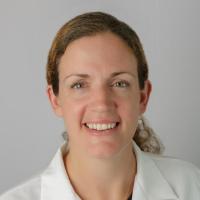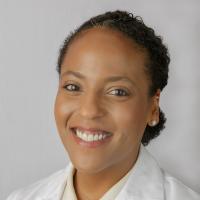Diversity, Equity & Inclusion
Our Mission
The Division of General Medicine at Columbia University Irving Medical Center has a rich and long-standing commitment to deliver world-class care to otherwise underserved and vulnerable patient populations primarily from Harlem, Washington Heights, and the Bronx; to foster an inclusive community for our trainees, faculty and staff; and to generate internationally-recognized research emphasizing social determinants of health and health disparities in multi-ethnic studies.
The Division’s core mission includes recruitment and retention of under-represented minority (URM) faculty, mentorship for URM students, residents and faculty, and community outreach to promote transparency and support of the patients we serve, many of whom are affected by racism in medicine. We see these activities as critical to providing stellar patient care, effective teaching, impactful research and significant community service and to reducing inequities within our diverse patient population and the healthcare workforce.
Currently, the Division has strong and growing minority representation in its faculty, with 50% of full professors being URM faculty. The Division runs the largest primary care practice in Northern Manhattan, which serves patients whose first language is primarily Spanish.
Divisional Leadership
Rafael A Lantigua, MD
- Professor of Medicine at CUMC
- Dean's Special Advisor for Community Health Affairs
- Director, Office of Community Service Programs

Jose A. Luchsinger, MD, MPH
- Robert F. Loeb Professor of Medicine and Professor of Epidemiology at CUMC
- Vice-Chair for Clinical and Epidemiologic Research, Department of Medicine
- Director, Section of Geriatrics, Gerontology, and Aging

William C Turner, MD
- Associate Professor of Medicine at CUMC
- Assistant Dean for Student Affairs, Vagelos College of Physicians and Surgeons

Brenda Aiken, MD
- Associate Clinical Professor of Medicine
- Associate Vice President, Medical Services, Columbia Health

Nathalie Moise, MD, MS
- Florence Irving Associate Professor of Medicine
- Director of Implementation Science Research, Center for Behavioral Cardiovascular Health

Maria Hamm De Miguel, MD,MS
- Associate Professor of Medicine at CUMC
- Associate Program Director, Columbia Medicine Residency
- Director of Ambulatory Education

Julia E. Iyasere, MD
- Assistant Professor of Clinical Medicine
- Executive Director, Dalio Center for Health Justice

Fostering a Diverse and Inclusive Health Workforce
The Visiting Scholars in Hospital Medicine Program is a funded program designed to give fourth-year medical students from diverse backgrounds a four-week away rotation on our hospitalist service. This program is in collaboration with the medical school’s Black and Latino Student Organization (BALSO) to serve as mentors and sponsors for the Summer Health Professions Education Program, the Kenneth A. Forde Diversity Alliance, and the Gerald E. Thomson Undergraduate Pre-medical Program (GET-UPP).
Columbia Black Men in Medicine (CBMIM) was cofounded by physicians in the Division of General Medicine to address the decreasing number of Black, male matriculants in US medical schools and in academic medicine (more specifically, at levels last seen in the 1940s) and to maximize healthcare equity and community through the mobilization, education, and support of Black men at Columbia Medical Center. Three different arms of Black male students, residents, and faculty meet to increase fellowship, optimize recruitment and retention, and give back to the community-at-large.
The Casco Alston, Jr MD, Society for Black Internists (CASBI), named in honor of Dr. Alston, who is believed to be the first African-American faculty member in the Department of Medicine, in 1952, was founded to increase fellowship, communion, and mentorship of faculty members who identify as Black in the DOM.
The Lindenbaum-Thomson Society (LTS) for URM Medical Houseofficers provides faculty and peer mentoring and support to URM housestaff during residency.
The Generalist-Primary Care Pathway supports residents interested in primary care and other general medicine careers, many of whom are members of URM groups and/or pursue careers in care for the underserved.







